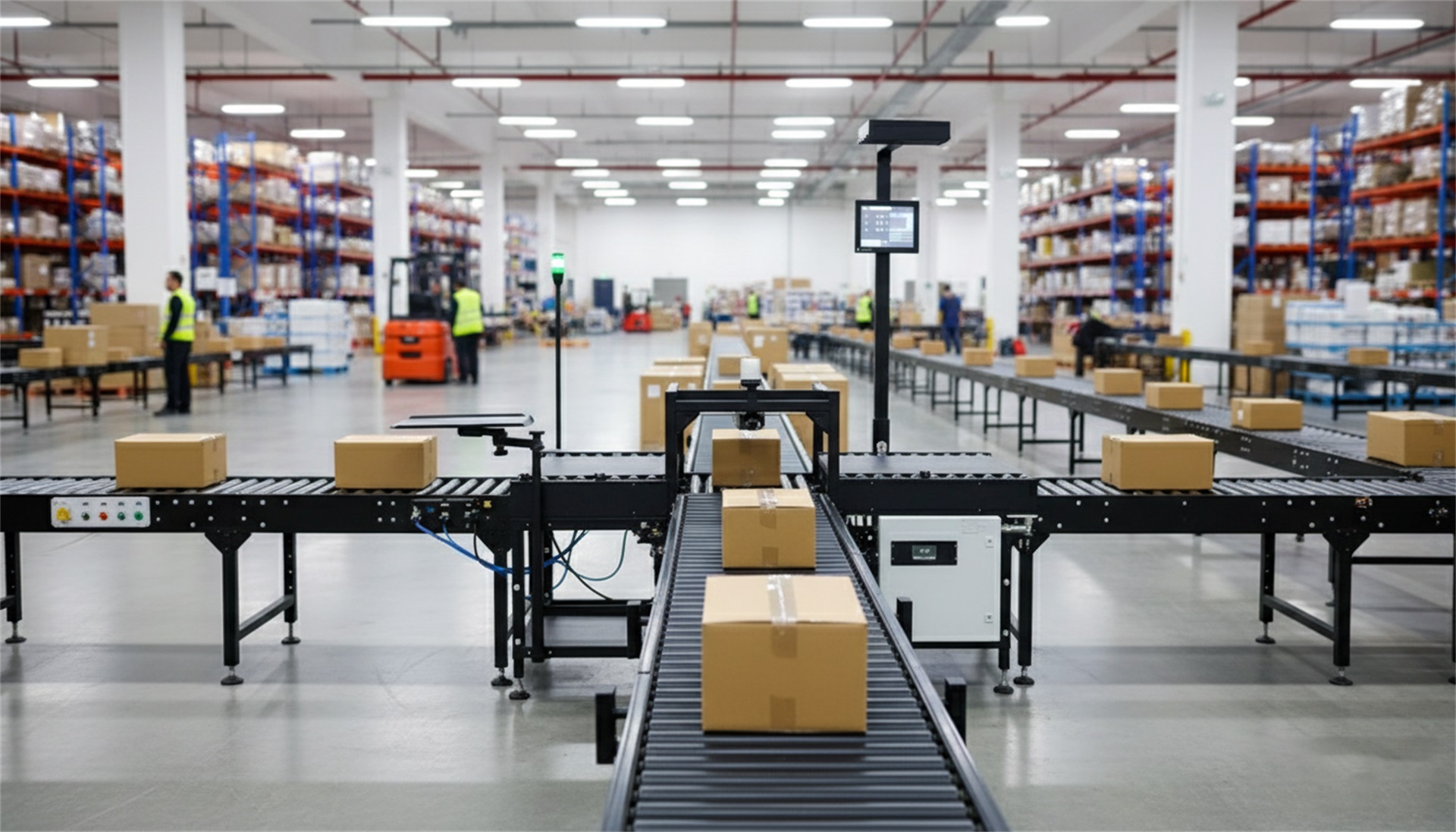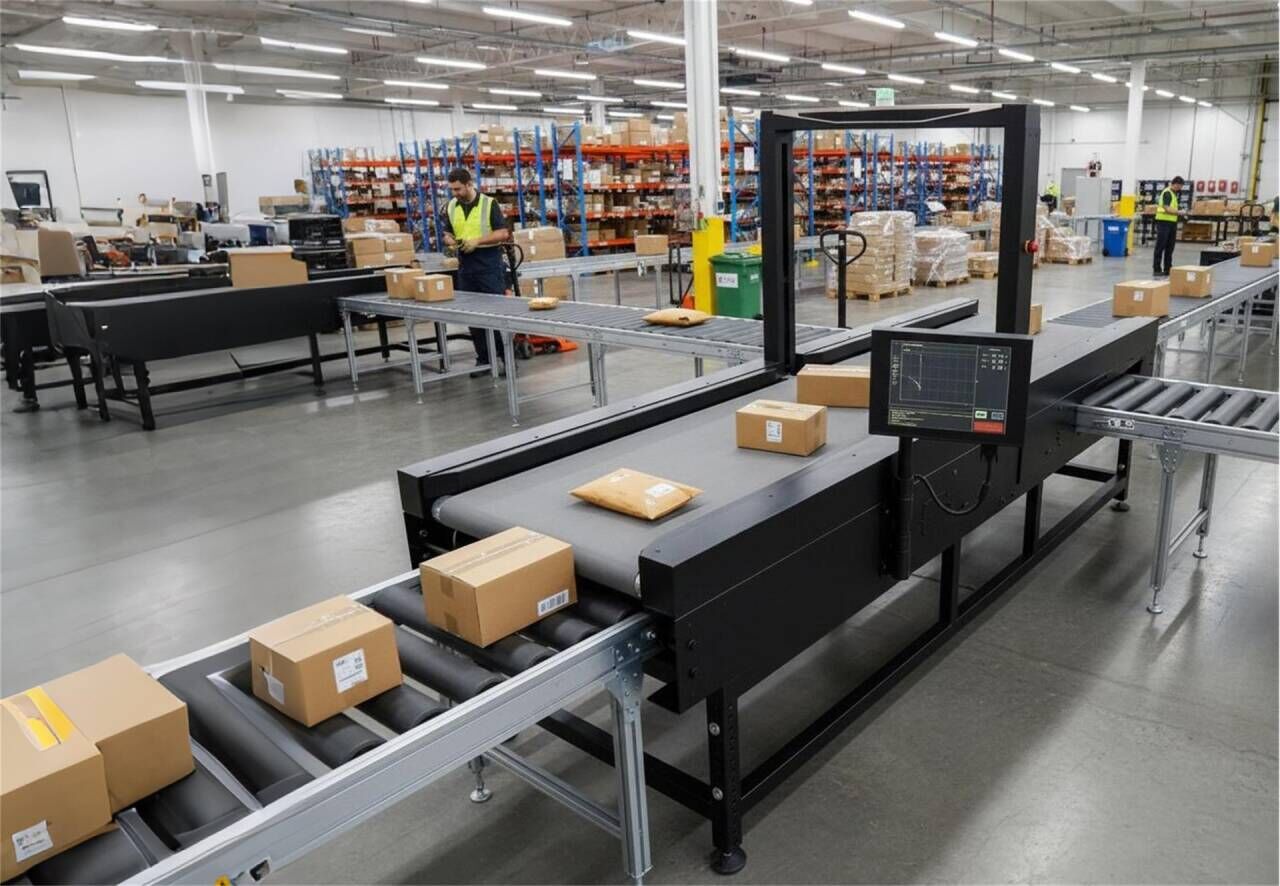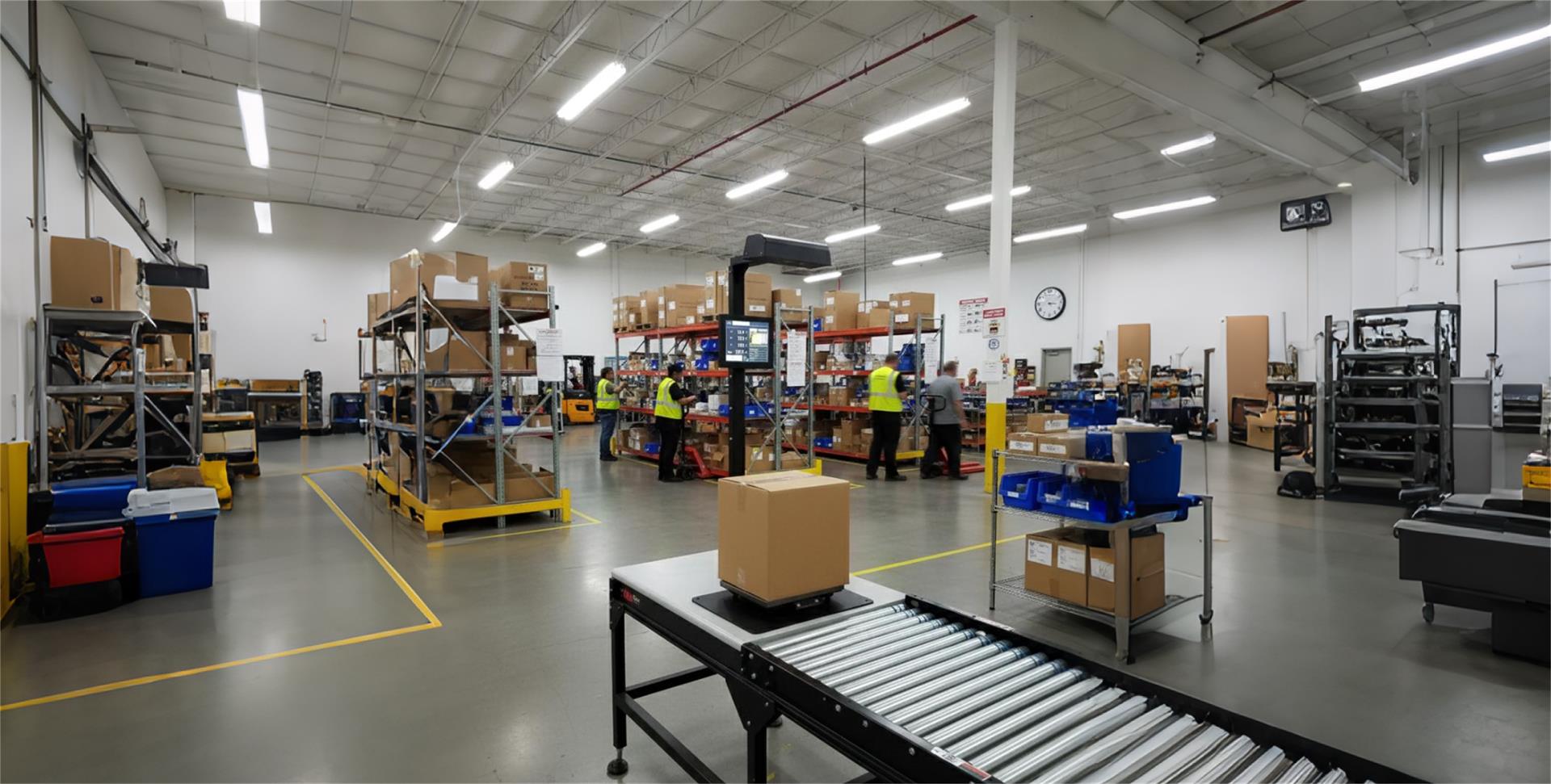Nov. 14, 2025
In scenarios such as logistics parcel sorting, manufacturing component inspection, and e-commerce warehouse packaging, dimensioning solutions (dimensional measurement solutions) are critical to achieving automated and precise operations. Their core requirement is to quickly and accurately collect the three-dimensional dimensions (length x width x height) of objects and perform integrated processing with data such as weight and barcodes. Leveraging high stability, strong interface compatibility, and environmental adaptability, Industrial Panel PCs have become the core control terminals for dimensioning solutions. They not only address the pain points of traditional dimensional measurement—such as "disconnected data, complex operations, and insufficient precision"—but also drive the upgrade of measurement processes toward "real-time, intelligent, and integrated" operations.

I. Application Requirements of Dimensioning Solutions
Dimensioning solutions need to address three major challenges: "multi-scenario measurement, high-precision requirements, and continuous operation." Traditional measurement solutions (such as manual measurement + computer recording and split-type controllers) have obvious shortcomings:Measured data, weight data, and barcode data are stored separately and require manual integration, leading to high error rates and low efficiency;The processing delay of raw data from camera and other measurement sensors is high, making it difficult to meet the real-time requirements of high-speed sorting scenarios;Measurement environments (such as strong warehouse lighting and workshop vibrations) can easily affect the stability of control terminals, resulting in data drift or system freezes;Dimensional measurement rules vary across industries (such as volumetric weight calculation for light bulk cargo in logistics and tolerance standards in manufacturing) and require flexible adaptation, which traditional terminals lack compatibility for.

II. Key Functional Advantages of Industrial Panel PCs Empowering Volumetric Weight Automatic Weighing Equipment
Compared with traditional control terminals, Industrial Panel PCs bring comprehensive improvements to volumetric weight automatic weighing equipment, which can be summarized into four core advantages:
1. Stability: Ensuring 24/7 Continuous Operation Without Failures
Industrial Panel PCs adopt industrial-grade motherboards and components (such as wide-temperature hard disks and surge-proof power supplies) with a Mean Time Between Failures (MTBF) of over 50,000 hours. They feature IP54 dust and water resistance, an operating temperature range of -10℃~60℃, and 5G vibration resistance design, adapting to complex measurement environments such as logistics sorting lines and factory workshops. Equipped with 8KV ESD protection (complying with GB/T 17626.2 ESD immunity test standards: 8KV contact discharge and 15KV air discharge), they can resist static interference generated by logistics packaging friction, contact with chemical fiber clothing in workshops, and component handling. In electronic component dimensional measurement scenarios, they prevent static breakdown of laser sensor acquisition modules or data drift, ensuring long-term measurement accuracy stability of ±0.5mm.
2. Interactivity: Adapting to Operational Needs in Complex Scenarios
High-speed data processing: Equipped with industrial-grade CPUs (such as Intel Celeron J4125 or i3/i5 processors), supporting a single-channel data sampling rate of ≥200Hz. They can real-time process raw 3D dimensional data from laser distance sensors and vision cameras, ensuring a measurement delay of ≤10ms;
Display adaptation: Supports multiple screen sizes from 10.1 to 21.5 inches. Some models feature sunlight-readable screens (brightness ≥1000cd/㎡) to solve display issues in strong warehouse lighting;
Convenient touch control: Optional resistive or capacitive touchscreens. Resistive touchscreens support glove operation (suitable for factory workshops), while capacitive touchscreens support multi-touch (suitable for quick clicks in warehouses);Multi-language and customizable interface: Supports multi-language switching and can be customized according to customer needs.
3. Expandability: Meeting Equipment Upgrade and Function Expansion Needs
Industrial Panel PCs reserve abundant expansion interfaces and slots, allowing flexible addition of components based on the upgrade needs of weighing equipment:
To increase data transmission distance, 4G/5G modules or Wi-Fi 6 modules can be added;
To improve data processing speed, the CPU can be upgraded (e.g., from J1900 to i5-1035G1);
To add identity verification functions, external fingerprint recognition modules or IC card readers can be connected to ensure controlled operation permissions.
4. Compatibility: Seamless Connection with Multiple Devices
Multi-sensor compatibility: Standard interfaces include RS232/485 (for connecting laser sensors), GigE Ethernet (for connecting industrial cameras), and USB 3.0 (for connecting barcode scanners). No additional expansion cards are required to achieve synchronous collection of "dimension + weight + barcode" data;
System compatibility: Supports multiple operating systems such as Windows 7/10/11 and Linux (e.g., Ubuntu), and is compatible with mainstream weighing equipment management software. It can also achieve data interoperability with enterprise-level systems such as ERP, WMS, and MES, avoiding "information silos" and improving the intelligence level of the overall operational process.

III. Practical Application Case
A dimensional measurement equipment manufacturer introduced 100 units of the Sihovision SC121 (12-inch customized Industrial Panel PC with CPU J1900, 1024×768 resolution, 400cd/㎡ brightness, 5-wire resistive touch, and 8KV ESD protection) in 2024 for use with volumetric weight automatic weighing equipment. Our product has helped the customer achieve sustained growth, which is why the customer has established a stable long-term cooperative relationship with us.
In summary, the application of Industrial Panel PCs in volumetric weight automatic weighing equipment is the core support for achieving "high precision, high durability, and high stability" of such equipment in complex scenarios. Whether in logistics sorting, component inspection, or food check weighing scenarios, customized models can serve as the core control terminals for weighing equipment with "high adaptability, high stability, and high cost-effectiveness," driving operational processes toward higher efficiency and precision.
Previous: None
Next: Sihovision-Built Marine Displays Serve as the "Visual Lifeline" for Round-the-World Yacht Races